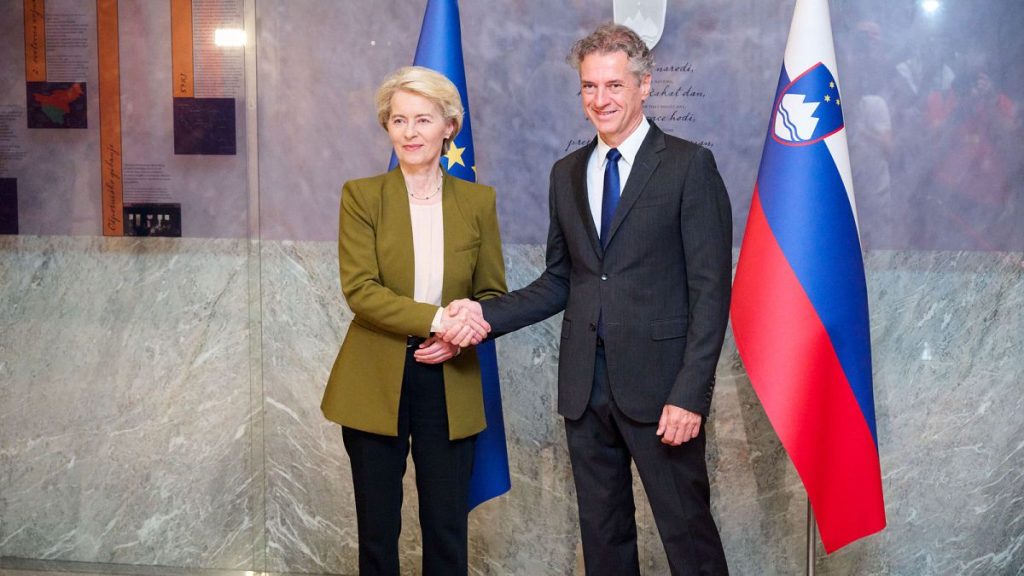The Slovenian government’s initial nominee for the European Commissioner position, Tomaž Vesel, withdrew from the race on Friday. In response, former diplomat Marta Kos has been named as Slovenia’s new nominee after European Commission President Ursula von der Leyen urged the government in Ljubljana to replace Vesel with a woman candidate. Kos, who has previously served as Slovenia’s ambassador to Germany and Switzerland, was unanimously approved by the government. Slovenia is among a few EU countries that von der Leyen pushed to ensure gender parity in the next Commission, with more female candidates being nominated.
Despite von der Leyen’s request for two candidates, one male and one female, most EU governments had not followed through until Slovenia and Romania decided to retract their male candidates in favor of women. Pressure from the Commission seems to have led countries like Portugal and Belgium to also opt for female nominees. With 17 male candidates and 10 female candidates currently in the running for the 26 positions available in the next Commission, the gender balance is improving from previous expectations. This development aligns with von der Leyen’s efforts to increase the representation of women in the Commission.
Marta Kos’s nomination as Slovenia’s new European Commissioner comes shortly before von der Leyen is scheduled to unveil the proposed structure of her new team, as well as the specific policy portfolios that each member will be responsible for leading. Diplomatic sources suggest that von der Leyen intends to assign more ambitious policy roles to countries that nominate women candidates. Kos’s extensive diplomatic experience as Slovenia’s Ambassador to various countries makes her a strong candidate for a senior role within the Commission. Von der Leyen has emphasized the importance of competence and experience in selecting her team members.
Von der Leyen’s push for gender parity in the next European Commission reflects her commitment to diversity and equal representation. By encouraging countries to nominate female candidates, she aims to create a more balanced and inclusive leadership team. The decision by Slovenia to replace its male nominee with a woman demonstrates the influence of the Commission’s priorities on member states. Kos’s nomination is part of a broader trend towards greater representation of women in EU leadership positions, with the aim of ensuring that the Commission reflects the diversity of EU citizens.
The process of nominating and approving candidates for the European Commission highlights the importance of gender equality and diversity in European politics. Von der Leyen’s efforts to promote more female candidates demonstrate a commitment to breaking gender barriers and advancing women’s representation in leadership roles. The shift towards a more gender-balanced Commission reflects changing attitudes towards inclusivity and diversity in European institutions. With Kos’s nomination as Slovenia’s new European Commissioner, the Commission is taking a step towards greater gender parity and representation in its leadership team, in line with von der Leyen’s vision for a more inclusive and diverse EU.


